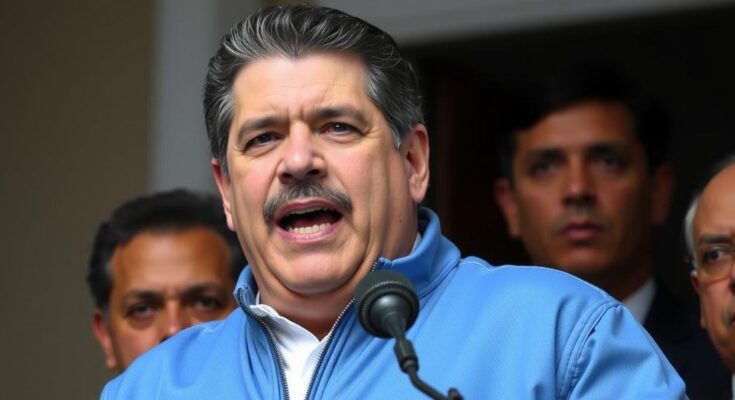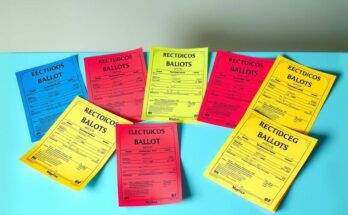Venezuelan President Nicolás Maduro was inaugurated for a disputed third term, despite opposition claims of a rightful election victory by Edmundo González. The election has sparked widespread protests and a crackdown on dissent, as González rallies support internationally to challenge Maduro’s governance. Maduro’s promises of peace and democracy are overshadowed by his history of electoral malfeasance and repression of opposition figures.
On Friday, Venezuelan President Nicolás Maduro was sworn in for a disputed third term amid ongoing controversies surrounding the July election results. Despite lacking clear electoral evidence, Maduro insists his power derives from the people, not foreign nations or elites. The electoral process has been heavily scrutinized, with opposition candidate Edmundo González reported to have emerged victorious according to independent monitors. His claims, however, have met with a crackdown by the Maduro administration, leading to widespread protests and arrests. Prior to the inauguration, Maduro’s government intensified repression, detaining numerous opposition leaders, activists, and demonstrators. As González rallies international support to reclaim the presidency, Maduro characterized these efforts as conspiratorial, solidifying tensions within the divided nation. Maduro’s promise of a revitalized Venezuela stands in stark contrast to his historical record of electoral malfeasance and suppression of dissent, casting doubt on his leadership and the future of democratic governance in Venezuela.
The political landscape in Venezuela has been marked by turmoil since President Nicolás Maduro assumed office in 2013. His recent inauguration follows a contested election that raised significant international and domestic scrutiny. The opposition, led by Edmundo González, claims victory based on independent tallies, yet the Maduro administration insists on the legitimacy of its electoral victory. Subsequent unrest has fueled protests against the government, resulting in violence and arrests. The political crisis continues to escalate as the opposition seeks to challenge Maduro’s authority.
In summary, President Nicolás Maduro’s third term inauguration represents a significant moment in Venezuela’s ongoing political crisis. With opposing claims regarding the election’s legitimacy and intensified government repression against dissent, the landscape remains fraught with uncertainty. Edmundo González’s efforts to challenge Maduro’s grip on power, alongside international support, will be critical in the coming months. Yet, Maduro’s historical actions and promises appear to put Venezuela’s democratic future in jeopardy.
Original Source: reason.com




